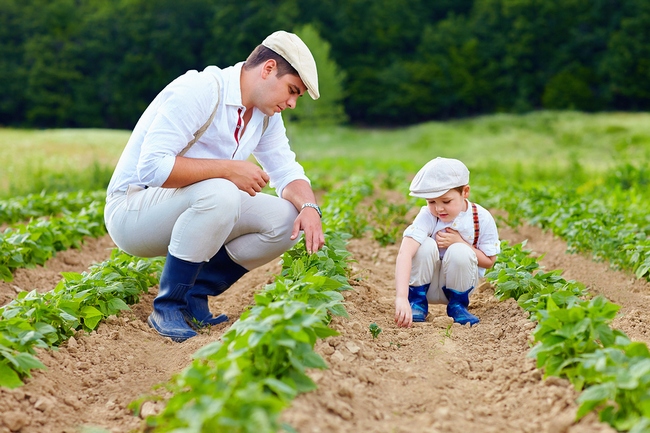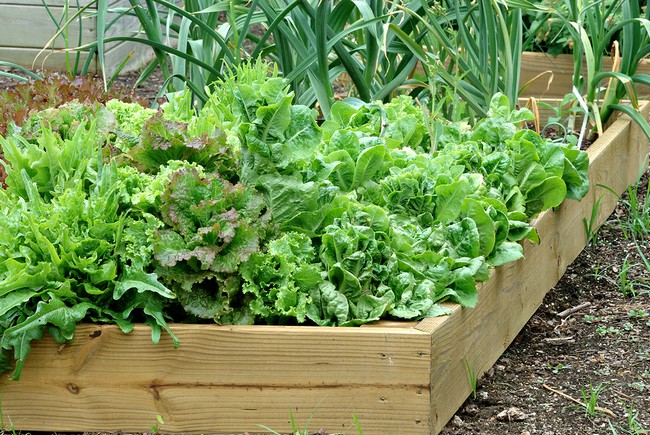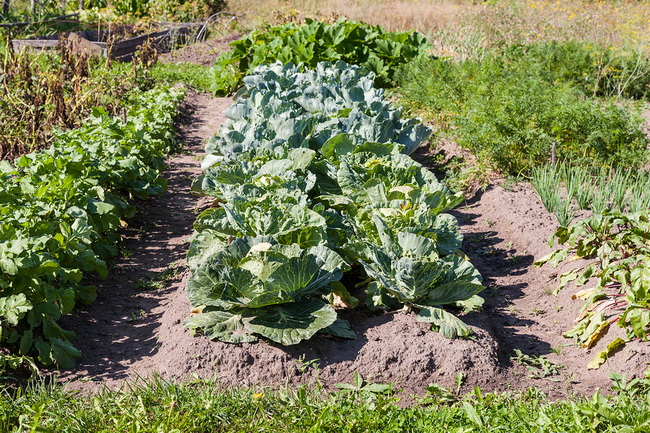- Make It Yourself Lavender Heart-Shaped Bath Bombs!
- 20 Things You Never Knew About “Down There”
- 12 Best Foods For Those Suffering From Arthritis Pain
- 12 Personal Hygiene Mistakes Almost Everyone Makes (Mom Never Told You About #4!)
- 15 Medicinal Plants And Herbs From The Cherokee People
- 12 Mind-Blowing Benefits Of Drinking Coconut Water During Pregnancy
- 12 Outstanding Winter Foods That Won’t Fatten You Up Like A Christmas Turkey
Fertilizers for the Garden and for Houseplants That Cost You Nothing!

Photo credit: bigstock.com
Spring is here and with this popular season comes spring planting! Before you know it, summer will be here, bringing you those luscious vegetables and fruits you’ve looked forward to all winter long. So, you have everything ready, right? Seeds, new gloves, maybe a new garden hose, and fertilizer. Did you buy fertilizer? Everyone knows that plants need fertilizer to be their best, but many people either just don’t bother, or they pay a small fortune for some organic type of fertilizer.
Some people do compost, which is great, but let’s be honest, most of us don’t. We don’t have the space or we are – well, let’s be honest, we’re lazy. It’s alright. Everyone is busy and a compost pile is something you can live without. But what if we told you that you have tons of fertilizing material right at your fingertips and you just don’t know it?
Free fertilizers come in three different types: plant, food, or animal. There are a few miscellaneous items, but those are the major categories. You don’t have to do them all, and some will work better for you than others, and that’s OK. All you have to do is choose the method(s) that works best and go with it.
Most gardens run out of really good quality soil after your plants roots grow past the first inch or two of soil. Then it depends on what type of soil you have as to what type of nutrients will be available to your plants. When you go to all the trouble to sow your seeds, keep out the dogs, insects, and animals, remove weeds, and be certain that your veggies get the right amount of water, don’t you want to see a bumper crop of vegetables? Who doesn’t?! Isn’t that what gardening is all about?
By the way, your houseplants and flowers or herb gardens also benefit from a regular application of fertilizer. These freebie fertilizers will work for them, too, giving you bigger flowers, more lush leaves, and better overall growth.
Let’s look at the top fertilizers that you can give your plants from items you would most likely just throw away otherwise.
Continue to Page 2

Photo credit: bigstock.com
First, let’s take a look at food-based fertilizers. You don’t need a compost pile to get fertilizer from your food scraps. Here’s how you can do it:
- Food Mulch: Simply grind up one or more of the foods listed below and add about a teaspoon or so to the base of each plant and work it into the soil. You can do this as often as once each week but do so a minimum of every three weeks for best results.
- Powdered Food Fertilizer: Dry some of the foods from the list below in the oven, outside in the sun, or in your dehydrator. Once they are completely dry, grind in a blender until it makes a fine powder and put a tablespoon or so at the base of each plant and water well.
- Food “Tea” Fertilizer: Using a container with a lid (to keep out flies and other insects) place some of the foods listed below in your container. Fill with water and allow to sit for a minimum of 3 days, or as long as you like. When your plants need water, put one cup of this tea into one gallon of plain water and use as you normally would.
Best Foods for Fertilizing:
- Carrot peels
- Citrus rinds
- Coffee grounds (if you don’t drink coffee, ask your friends for theirs, or ask Starbucks for some. Starbucks gives out grounds to anyone who asks!)
- Onion peels
- Molasses
- Peanut shells
- Potato peels
- Pulp from juicing
- Sugar
- Tea leaves ( you can soak the entire tea bag, or open the bag and remove the leaves)
- Banana peels
- Egg shells
- Gelatin
Some liquids that are great for fertilizer; no more leftovers! (Simply dilute with some water and pour!) :
- Beer
- Coffee ( without added sugar or milk)
- Energy drinks
- Molasses (dilute 3 tablespoons in one gallon of water)
- Tea
Plant Fertilizers
When you cut plants from your garden or mow the lawn, you can also use those cuttings for fertilizer! Make fertilizer from plants much the same way that you would food. You can make a “tea” by dumping them in a bucket of water and allowing it to set or you can simply allow them to dry, chop them, and then work them back into the soil. Be sure not to use any roots. The best plant based fertilizers are:
- Tree leaves, or plant leaves
- Nettle
- Oat straw
- Water weeds
- Wood ashes (from untreated wood)
- Saw dust (from untreated wood)
- Yellow dock
- Alfalfa
- Horsetail
- Burdock
- Green manure (mainly oats, rye, clover, peas, buckwheat, or wheat)
- Chickweed
- Grass clippings
- Clover
- Dandelion
- Comfrey
- Crimson clover
- Dollar weed
Continue to Page 3

Photo credit: bigstock.com
Fertilizer from Animals
Although Fido won’t be able to help you much in this area, there are plenty of other animals that can help you make outstanding fertilizer. The best fertilizers are:
- Manure from non-meat eating animals such as goats, rabbits, chickens, horses, and cows.
- Manure from bats. Although these do eat insects, the manure from bats is one of the best fertilizers around.
- Blood meal (dried animal blood)
- Bone meal (ground animal bones)
- Fish heads, tails, bones, and guts
- Shrimp shells
- Worm castings
You might find some of these fertilizers for sale on your store shelves, but why pay for something you can get for free?
SEE ALSO: 5 Super Easy to Grow Veggies for Your Own Organic Produce
There are a couple other types of fertilizers that don’t fall into any of these categories, and although they might seem a bit strange, they work amazingly well.
- Human Urine: This sounds gross and strange at the same time, but the truth is, human urine is rich in nitrogen, potassium, and phosphate, which makes a really well balanced meal for your plants. Don’t worry, your pee is sterile, so it won’t hurt your plants. But don’t line up your husband and sons and ask them to fertilize the garden, as urine is strong and can burn your plants. This is why grass tends to turn yellow or brown when dogs pee on it. Dilute one part of urine to 10 parts of water. So if you get one cup of pee, dilute it with 10 cups of water, then soak the plant roots, avoiding the leaves. This makes for the most beautiful roses you have ever seen!
- Epsom salts: Although you should NEVER put regular table salt in your garden, Epsom salts are mostly made of magnesium, which is great for making your plants a deep green and encourages growth. Just one or two doses of Epsom salts will give you beautiful flowers, bigger houseplants, and more tomatoes, potatoes and peppers. Mix one tablespoon of Epsom salt into one gallon of water. Spray the leaves for best results.
- Human Hair: It’s true! Studies show that when human hair that had been discarded from Barber shops was added into the soil, plants grew at a substantially better rate. So collect that hair from those hairbrushes around your house and work it into the soil. Who knew?
Happy gardening friends!
References:

































Gabe
May 29, 2015 at 7:56 pm
Powdered kelp is also a very good inexpensive fertilizer, rich in micro-nutrients. You can purchase it relatively cheap at, http://www.herbalcom.com/index.php3?session=de3efd134e527fdea1840cecd8006913